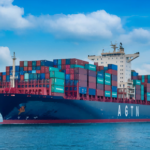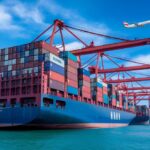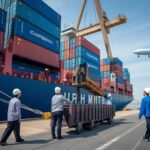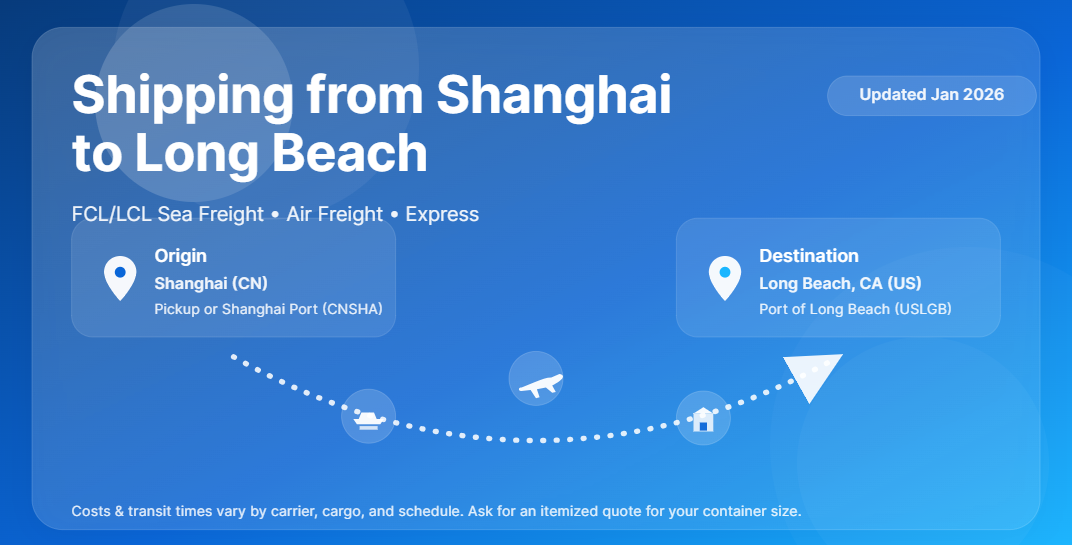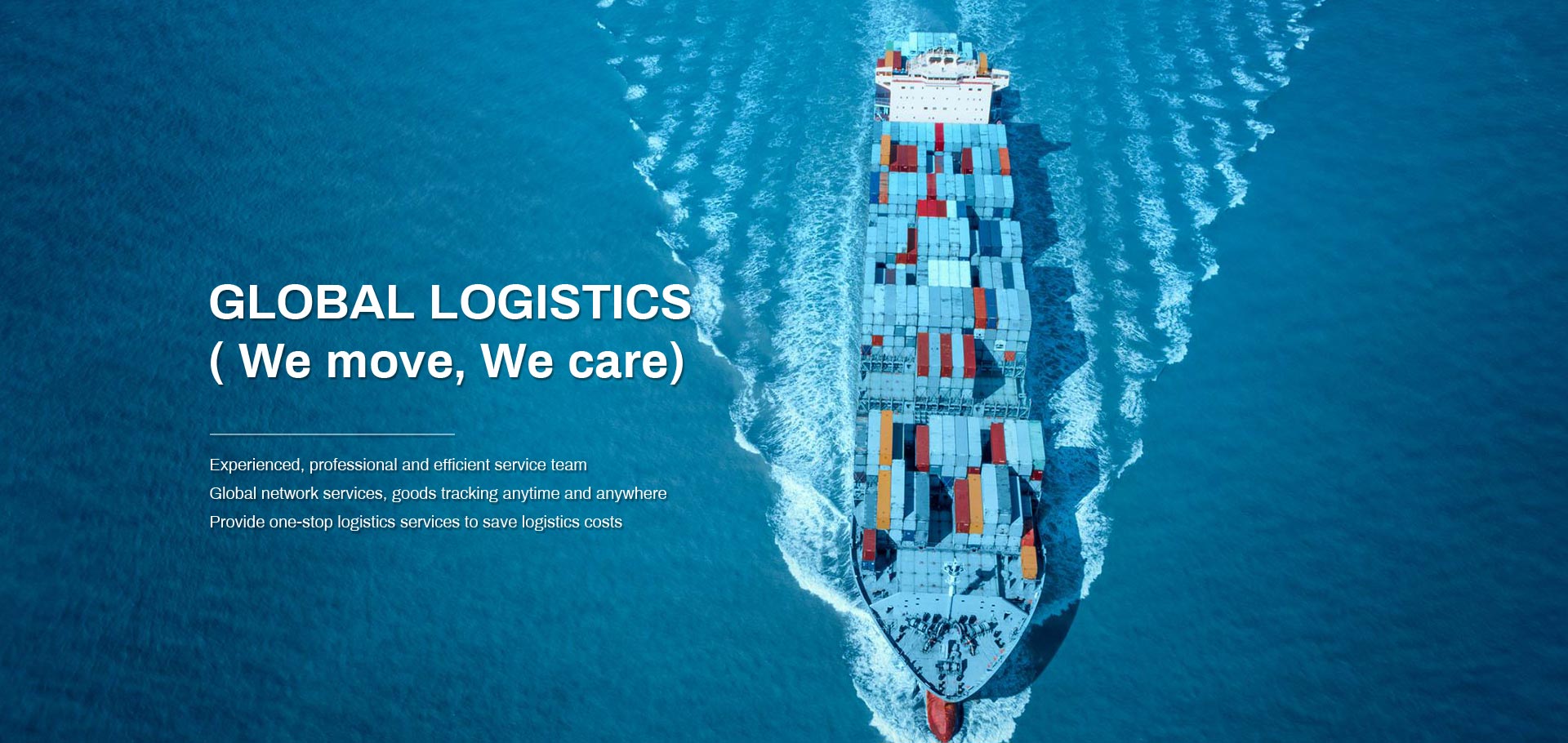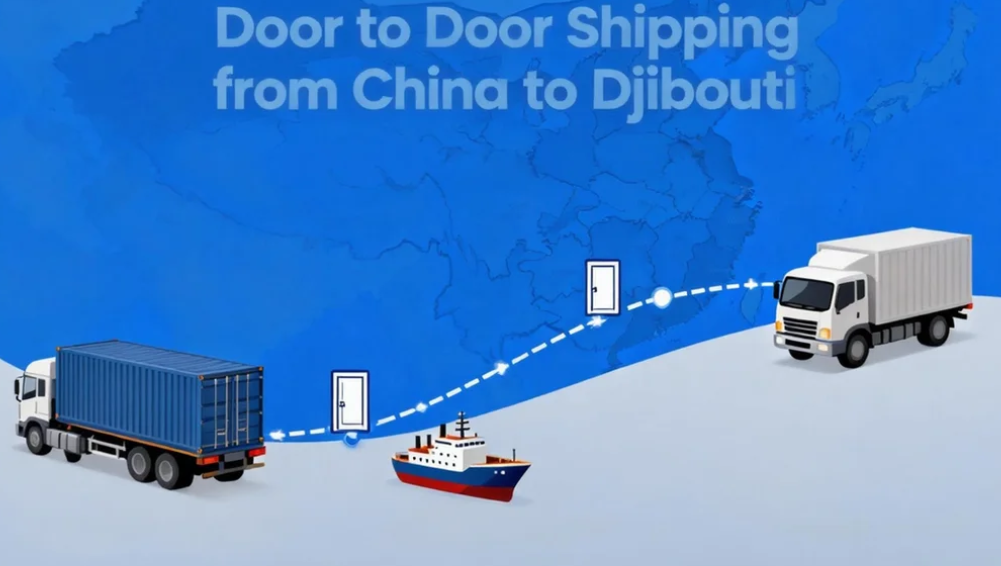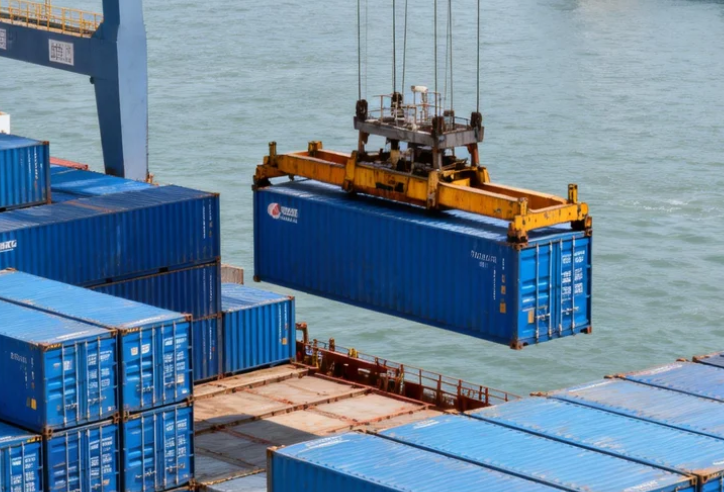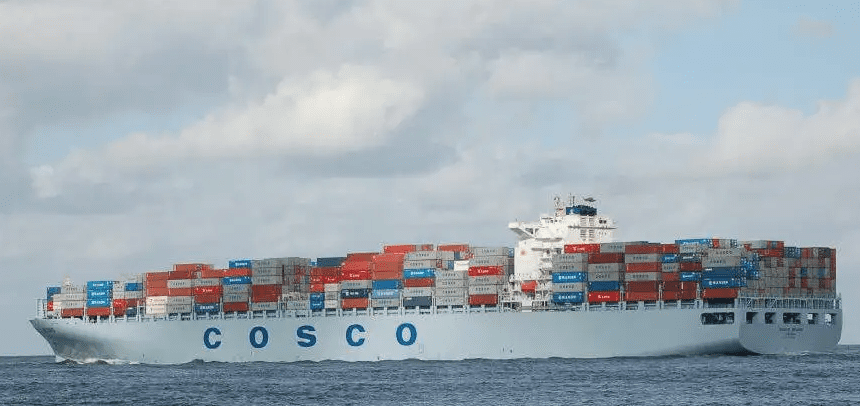Are you looking to streamline your shipping from Guangzhou to Singapore?
Efficient logistics can make all the difference for importers navigating this bustling trade route. In this comprehensive guide, we will explore the various shipping methods, costs, and timelines you need to consider. Additionally, you’ll discover essential tips for customs clearance and strategies to reduce shipping expenses. By the end of this blog, you’ll be armed with the knowledge to make informed decisions and optimize your shipping experience.
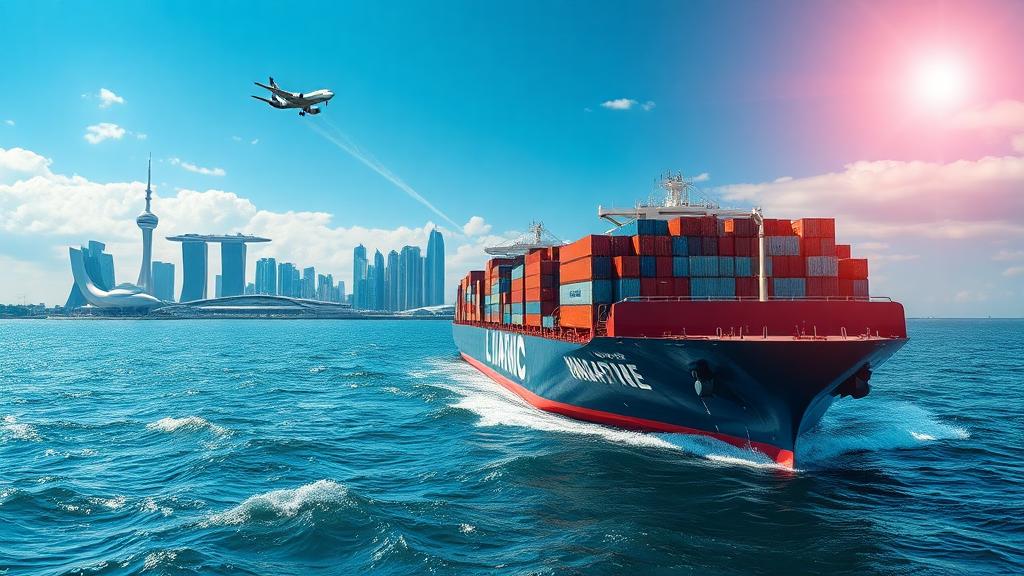
Overview of Shipping from Guangzhou to Singapore
Importance of Efficient Shipping for Importers
Efficient shipping plays a vital role in the success of importers who are looking to source goods from Guangzhou, one of China’s major manufacturing hubs, to Singapore, a key maritime trade center in Southeast Asia. The speed and reliability of shipping can directly impact inventory management, customer satisfaction, and overall business operations. For importers, delays in shipping can result in stock shortages, missed sales opportunities, and increased operational costs. Therefore, it is essential for businesses to partner with reliable logistics providers like Dantful International Logistics, which offers a range of professional services tailored for global traders, ensuring the timely and cost-effective transport of goods.
Key Factors Influencing Shipping Decisions
Several factors influence the decision-making process when it comes to shipping from Guangzhou to Singapore. Understanding these factors can help importers make informed choices:
Shipping Method: The choice between sea freight and air freight is paramount. Sea freight is generally more economical for larger shipments, while air freight provides quicker delivery times, albeit at a higher cost.
Cost: Importers must consider their shipping budgets. Factors such as the type of goods, volume, weight, and shipping method affect overall shipping costs. Comparing quotes from various freight forwarders is advisable to ensure competitive pricing. Importers can explore options for cheapest shipping company from china to Singapore to manage costs effectively.
Transit Times: The expected shipping time from Guangzhou to Singapore can vary significantly based on the shipping method chosen. Importers should assess their urgency for delivery and select the method that aligns with their timelines.
Customs Regulations: Importers must navigate the customs clearance process in both countries. Understanding the required documents and compliance requirements is crucial to avoid delays and additional costs.
Reliability of the Freight Forwarder: The choice of a knowledgeable and experienced freight forwarder can greatly influence the efficiency of shipping operations. A reputable partner like Dantful International Logistics can provide insights on the best practices in shipping and help streamline the process.
Shipping Methods from Guangzhou to Singapore
Sea Freight from Guangzhou to Singapore
Sea freight is a widely used method for transporting goods from Guangzhou to Singapore, particularly for bulk shipments. This method is favored for its cost-effectiveness, especially for large volumes. Key aspects of sea freight include:
Containerization: Goods are typically shipped in containers, which can range from 20ft to 40ft in size. This not only protects the cargo but also maximizes space efficiency.
Transit Times: The typical transit time for sea freight from Guangzhou to Singapore is approximately 5 to 14 days, depending on the shipping line and route.
Cost Factors: The cost of sea freight is influenced by several factors, including shipping distance, fuel prices, and port charges. Importers are encouraged to work with professional freight forwarding companies like Dantful International Logistics to navigate these complexities and achieve competitive rates.
Air Freight from Guangzhou to Singapore
When speed is essential, air freight is the preferred shipping method. Although more expensive than sea freight, air freight reduces transport time significantly, making it ideal for time-sensitive shipments. Key features include:
Fast Transit Times: The typical shipping time from Guangzhou to Singapore via air freight can be as short as 1 to 3 days, which is advantageous for urgent deliveries.
Cost Considerations: Air freight rates are generally based on weight and dimensions, and while it is pricier, it can be worth the investment for high-value or perishable items. Importers can compare air freight options to find the best solution.
Cargo Types: Air freight is particularly suitable for small, lightweight, or high-value goods, such as electronics, fashion items, and pharmaceuticals.
In conclusion, understanding the various shipping methods and their implications is crucial for importers looking to optimize their logistics strategy. Partnering with a reliable freight forwarder like Dantful International Logistics can enhance shipping efficiency and contribute to overall business success.
Shipping Costs from Guangzhou to Singapore
Breakdown of Shipping Costs: Sea vs. Air Freight
When importing goods from Guangzhou to Singapore, understanding the shipping costs involved is crucial for effective budget management. The two primary shipping methods—sea freight and air freight—offer varying cost structures.
| Shipping Method | Average Cost (per cubic meter) | Typical Weight Limit | Additional Fees |
|---|---|---|---|
| Sea Freight | $100 – $150 | Less than 2,000 kg | Port fees, handling fees, insurance |
| Air Freight | $500 – $1,200 | Up to 1,500 kg | Airport fees, fuel surcharges, insurance |
Note: Costs may vary based on specific factors such as seasonality, fuel prices, and individual freight forwarder pricing. For real-time quotes, consulting with a freight forwarder like Dantful International Logistics is highly recommended.
Factors Affecting Shipping Costs and How to Optimize Them
Several factors influence the overall shipping costs from Guangzhou to Singapore.
- Weight and Volume of Cargo: Heavier and bulkier items incur higher costs, particularly in air freight.
- Shipping Method: As indicated in the table, sea freight is generally more economical for larger volumes, while air freight is faster but significantly more expensive.
- Fuel Prices: Fluctuations in oil prices can directly affect freight costs. Keeping an eye on these trends can help in planning shipments.
- Insurance: Opting for insurance adds to shipping costs but protects against loss or damage, making it a wise investment. Consider exploring Insurance Services for more information.
- Freight Forwarder Fees: Different freight forwarders have their pricing structures. Leveraging the expertise of a professional like Dantful International Logistics can help you navigate these costs efficiently.
To optimize shipping expenses, consider these strategies:
- Consolidation: Combining multiple shipments into one can reduce overall shipping costs. Check out consolidated freight shipping for more details.
- Negotiation: Work with your freight forwarder to negotiate better rates, especially if you have consistent shipping needs.
- Proper Packaging: Efficient packaging reduces volume and weight, subsequently lowering shipping costs.
Shipping Times from Guangzhou to Singapore
Typical Transit Times for Sea Freight
The transit time for sea freight from Guangzhou to Singapore generally ranges from 5 to 14 days. Factors that influence this timeline include:
- Vessel schedules: Availability of shipping schedules can directly impact delivery times.
- Port congestion: High traffic at ports can lead to delays.
- Customs clearance: Efficient processing can expedite delivery, while delays can extend shipping times.
Typical Transit Times for Air Freight
In contrast, air freight offers a significantly faster shipping option, typically taking between 1 to 3 days for delivery. However, the speed comes at a premium. Factors affecting air freight transit times include:
- Flight availability: Depending on the day of the week, flight schedules may vary.
- Customs processing: Immediate customs clearance can ensure prompt delivery.
Tips for Reducing Shipping Times
To minimize shipping times when transporting goods from Guangzhou to Singapore, consider the following tips:
- Choose the Right Freight Method: Assess whether your cargo can be shipped via air or sea based on urgency and cost.
- Pre-Arrange Customs Documentation: Ensure all paperwork is in order prior to shipping. This can expedite customs clearance and reduce delays.
- Use a Reliable Freight Forwarder: Partner with a professional freight forwarding service, such as Dantful International Logistics, to ensure all aspects of the shipping process are managed efficiently.
- Plan for Peak Seasons: Awareness of peak shipping times can help avoid delays due to congestion. Schedule shipments outside of these busy periods when possible.
By understanding the costs and transit times involved in shipping from Guangzhou to Singapore, importers can make informed decisions that align with their budget and deadlines, ensuring a smooth import process.
Customs Clearance and Duties for Shipping to Singapore
Understanding Customs Procedures for Imports
When importing goods from China to Singapore, navigating the customs procedures is crucial for a smooth shipping process. The Singapore Customs authority oversees the importation of goods into the country, and compliance with their regulations is imperative for the timely delivery of your shipments.
Pre-shipment Documentation: Essential documents include the commercial invoice, packing list, bill of lading (for sea freight), or air waybill (for air freight). Additionally, specific permits may be required depending on the nature of the goods. For instance, regulated products such as food and pharmaceuticals require additional documentation.
Import Declaration: Importers must submit an import declaration through the TradeNet system, which is Singapore’s electronic system for trade documentation. This declaration includes information about the type of goods, value, and origin.
Inspection and Duties: Customs may inspect shipments upon arrival. The duties and taxes applicable to your goods are calculated based on their declared value. Understanding the Harmonized System (HS) Codes for your products can help you anticipate duties.
Effective strategies, such as working with a qualified freight forwarder like Dantful International Logistics, can simplify the customs process. Our experts are well-versed in customs regulations and can assist you in preparing all necessary documentation to avoid delays.
Estimated Duties and Taxes for Goods Imported from China
The duties and taxes imposed on goods imported into Singapore can vary significantly depending on several factors, including the type of goods and their declared value. Here’s a breakdown:
| Type of Goods | Estimated Duty Rate | Goods and Services Tax (GST) |
|---|---|---|
| General Merchandise | 0% – 20% | 8% (effective from January 2023) |
| Food Products | 0% – 5% | 8% |
| Electronics | 0% – 15% | 8% |
| Clothing & Textiles | 0% – 20% | 8% |
It is essential to confirm specific duty rates for your products through the Singapore Customs website or consult your freight forwarder for precise calculations.
Strategies for Reducing Shipping Costs
Tips for Negotiating Better Rates with Freight Forwarders
Negotiating shipping rates with freight forwarders can significantly impact your overall logistics costs. Here are some strategies to consider:
Research and Compare: Gather quotes from multiple freight forwarders, including Dantful International Logistics, to benchmark service offerings and prices.
Volume Discounts: If you frequently import goods, consider negotiating volume discounts based on your shipping frequency or quantity.
Long-term Partnerships: Building a relationship with your freight forwarder can often lead to better pricing. They may offer loyalty discounts or tailored solutions for your specific needs.
Flexible Shipping Options: Discuss options for flexible shipping schedules, which may allow you to take advantage of lower rates during off-peak times.
How to Optimize Packaging and Load Efficiency
Efficient packaging and load optimization can lower shipping costs significantly. Consider the following tips:
Use Standardized Boxes: Standard sizes can maximize container space and reduce costs. Avoid oversized packaging, which can lead to higher shipping fees.
Consolidate Shipments: Grouping multiple items into one shipment can reduce costs. Consolidated Freight options through freight forwarders like Dantful can offer savings.
Minimize Weight: Lightweight materials can help decrease shipping costs based on weight. Be mindful of both the packaging and product weight.
Strategic Loading: Ensuring optimal load distribution in containers not only saves space but also minimizes damage during transportation, which can lead to additional costs.
By implementing these strategies, importers can achieve substantial savings on shipping costs, leading to improved profit margins.
Choosing the Right Freight Forwarder for Your Needs
Qualities to Look for in a Freight Forwarder
Selecting the right freight forwarder is critical for the success of your import operations. Consider the following qualities:
Experience and Expertise: Look for a forwarder with proven experience in shipping from Guangzhou to Singapore and knowledge of the specific regulations that apply.
Range of Services: A comprehensive service offering, such as ocean freight, air freight, customs clearance, and insurance services, can simplify logistics and provide a one-stop solution.
Customer Service: Choose a forwarder that offers excellent customer support. Effective communication and responsiveness can make a significant difference in managing your shipments.
Transparent Pricing: The ideal freight forwarder should provide clear and transparent pricing, outlining all potential costs and avoiding hidden fees.
Benefits of Using a Professional Freight Forwarding Service
Utilizing a professional freight forwarding service, like Dantful International Logistics, presents several advantages:
Expert Guidance: Benefit from the expertise of professionals who understand the complexities of international shipping and customs regulations.
Cost-Effectiveness: Freight forwarders often have negotiated rates with carriers, which can lead to lower shipping costs than if you were to negotiate directly.
Time Savings: A freight forwarder can handle all logistical arrangements, allowing you to focus on your core business activities.
Risk Management: Comprehensive insurance options and customs compliance services help mitigate risks associated with international shipping.
In conclusion, selecting a reliable freight forwarder and understanding customs procedures can significantly enhance your shipping experience. At Dantful International Logistics, we are committed to providing high-quality, cost-effective logistics solutions tailored to your unique needs.

Young Chiu is a seasoned logistics expert with over 15 years of experience in international freight forwarding and supply chain management. As CEO of Dantful International Logistics, Young is dedicated to providing valuable insights and practical advice to businesses navigating the complexities of global shipping.

